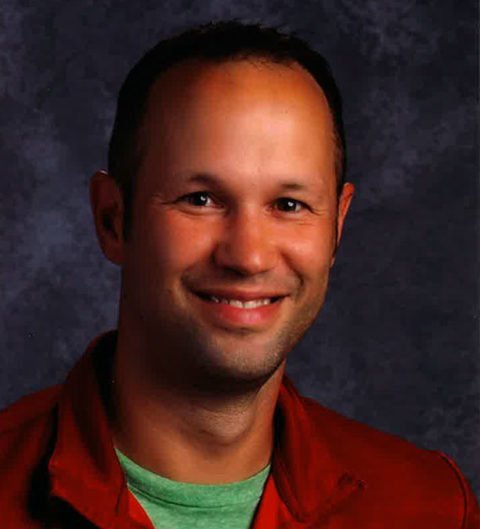“Building passion is the name of the game here. If you truly love and are excited about your topic, students will feed off that energy and be excited to learn. I love to think my classroom is overflowing with passion.”
When David Lilly began teaching automotive technology at Portsmouth Career Technical Center in Portsmouth, New Hampshire eight years ago, the program’s enrollment was so low that it was at risk of being shuttered. Lilly, who holds seven Automotive Service Excellence certifications, transformed the program into a National Automotive Technicians Education Foundation-certified pathway that offers dual credit at local colleges and engages students with a demanding, multidisciplinary curriculum
and the opportunity to pilot Ford and Mercedes Benz training programs for high school students.
Lilly’s students practice their skills on vehicles owned by his program before moving on to work on customer cars—writing repair orders, diagnosing problems and selecting and installing parts, all while practicing the “soft skills” needed to serve customers. Students operate a “live” shop, repairing cars for parents, faculty, students, community members and local police within a businesslike environment.
Throughout the program, Lilly incorporates mathematics, science, engineering and technical reading and writing lessons, and gives students the opportunity to present research on subjects like alternative fuels and self-driving cars. Representatives from industry and academia are regular visitors to Lilly’s classroom; field trips and co-operative job placement opportunities also give students exposure to various pathways they can pursue after college. Lilly credits the rigor of the curriculum with increasing
student interest in his courses.
Lilly’s students excel in state and national competitions, winning gold and silver in New Hampshire’s SkillsUSA state championships and, last year, placing seventh at the National Automotive Technology Competition. The national recognition helped bring scholarships, vehicle donations and better equipment to Lilly’s classroom, along with new industry, manufacturer and college connections. Lilly also notes that competitions give his students—many of whom are not on athletic teams and don’t have the chance to demonstrate what they can do—a sense of accomplishment. “The hard work and success of the students becomes contagious,” Lilly said, “and is often passed on to younger students.”
When his students are ready to graduate, Lilly not only connects them to local colleges and dealerships, but also helps them find and apply for scholarships. “All this time is worth it when a student walks in one day with a giant smile and an acceptance letter,” Lilly said.
“For some of these students, it is the first time someone is giving them independence and challenging them to follow through on their commitments. I am thrilled to give them this opportunity and help students succeed and grow as individuals.”
